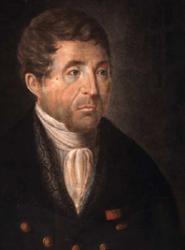Planning worship?
Check out our sister site, ZeteoSearch.org,
for 20+ additional resources related to your search.
- |
User Links
Search Results
Marseilles Hymn
Author: Claude Joseph Rouget de Lisle Appears in 14 hymnals First Line: Ye sons of Freedom, wake to glory! Refrain First Line: To arms, to arms ye brave!
Marseilles Hymn
YE CHRISTIAN HEROES
Appears in 1 hymnal Used With Text: Ye Christian heroes, wake to glory
YE CHRISTIAN HEROES
[Ye friends of Temp'rance, wake to duty]
Appears in 33 hymnals Composer and/or Arranger: Rouget de Lisle Incipit: 55511 22531 13164 Used With Text: The Marseilles
[Ye friends of Temp'rance, wake to duty]
Ye Sons of Freedom Wake to Glory
Hymnal: Hymns for Today #272 (1920) First Line: Ye sons of Freedom, wake to glory Lyrics: 1 Ye sons of Freedom, wake to glory!
Hark! hark! what myriads bid you rise!
Your children, wives, and grand-sires hoary,
Behold their tears, and hear their cries!
Behold their tears, and hear their cries!
Shall hateful tyrants, mischief breeding,
With hireling hosts, a ruffian band,
Affright and desolate the land,
When peace and liberty lie bleeding?
Refrain:
To arms, to arms, ye brave!
Th’avenging sword unsheath!
March on, march on,
All hearts resolved
On liberty or death!
2 With luxury and pride surrounded,
The vile insatiate despots dare,
Their thirst for gold and pow’r unbounded,
To smite and bind the light and air,
To smite and bind the light and air.
Like beasts of burden would they load us,
Like gods would bid their slaves adore,
But man is man, and who is more
Then shall they longer lash and goad us? [Refrain]
3 O, Liberty! can man resign thee,
Once having felt thy gen’rous flame?
Can dungeons, bolts and bars confine thee?
Or whips thy noble spirit tame?
Or whips thy noble spirit tame?
Too long the world has wept, bewailing,
That falsehood’s dagger tyrants wield;
But freedom is our sword and shield,
And all their arts are unavailing. [Refrain] Languages: English Tune Title: THE MARSELLAISE
Ye Sons of Freedom Wake to Glory
Ye sons of Freedom, wake to glory!
Hymnal: The Army and Navy Hymnal #P4 (1921)
Ye sons of Freedom, wake to glory!
Marseilles Hymn
Hymnal: The Assembly Hymn and Song Collection #141 (1914) First Line: Ye sons of Freedom, wake to glory Languages: English Tune Title: [Ye sons of Freedom, wake to glory]
Marseilles Hymn
Claude Joseph Rouget de Lisle

1760 - 1836 Person Name: Rouget de Lisle Author of "Ye Sons of Freedom" in Worship and Song. (Rev. ed.) Claude Joseph Rouget de Lisle, sometimes spelled de l'Isle, (10 May 1760, Lons-le-Saunier – 26 June 1836, Choisy-le-Roi), was a French army officer of the French Revolutionary Wars. He is known for writing the words and music of the "Chant de guerre pour l'armée du Rhin" in 1792, which would later be known as "La Marseillaise" and become the French national anthem.
De Lisle was born at Lons-le-Saunier, reputedly on a market day. His parents lived in the neighbouring village of Montaigu.[1] A plaque was placed at the precise spot of his birth and a statue erected in the town's centre in 1882. He was the eldest son of Claude Ignace Rouget (April 5, 1735 - August 6, 1792) at Orgelet and Jeanne Madeleine Gaillande (July 2, 1734 - March 20, 1811).
He enlisted into the army as an engineer and attained the rank of captain. The song that has immortalised him, La Marseillaise, was composed at Strasbourg, where Rouget de Lisle was quartered in April 1792. He wrote the words in a fit of patriotic excitement after a public dinner. The piece was at first called Chant de guerre pour l'armée du Rhin ("War Song for the Army of the Rhine") and only received its name of "Marseillaise" from its adoption by the Provençal volunteers whom Barbaroux introduced into Paris and who were prominent in the storming of the Tuileries Palace on the 10 August. Rouget de Lisle was a royalist and was cashiered and thrown into prison in 1793, narrowly escaping the guillotine. He was freed during the Thermidorian Reaction.
Rouget de Lisle wrote a few other songs of the same kind as the "Marseillaise" and in 1825 he published Chants français (French Songs) in which he set to music fifty songs by various authors. His Essais en vers et en prose (Attempts in Verse and Prose, 1797) contains the Marseillaise; a prose tale Adelaide et Monville of the sentimental kind; and some occasional poems.
De Lisle died in poverty in Choisy-le-Roi, Seine-et-Oise. His ashes were transferred from Choisy-le-Roi cemetery to the Invalides on 14 July 1915, during World War I.
--en.wikipedia.org/wiki/
Claude Joseph Rouget de Lisle


 My Starred Hymns
My Starred Hymns


